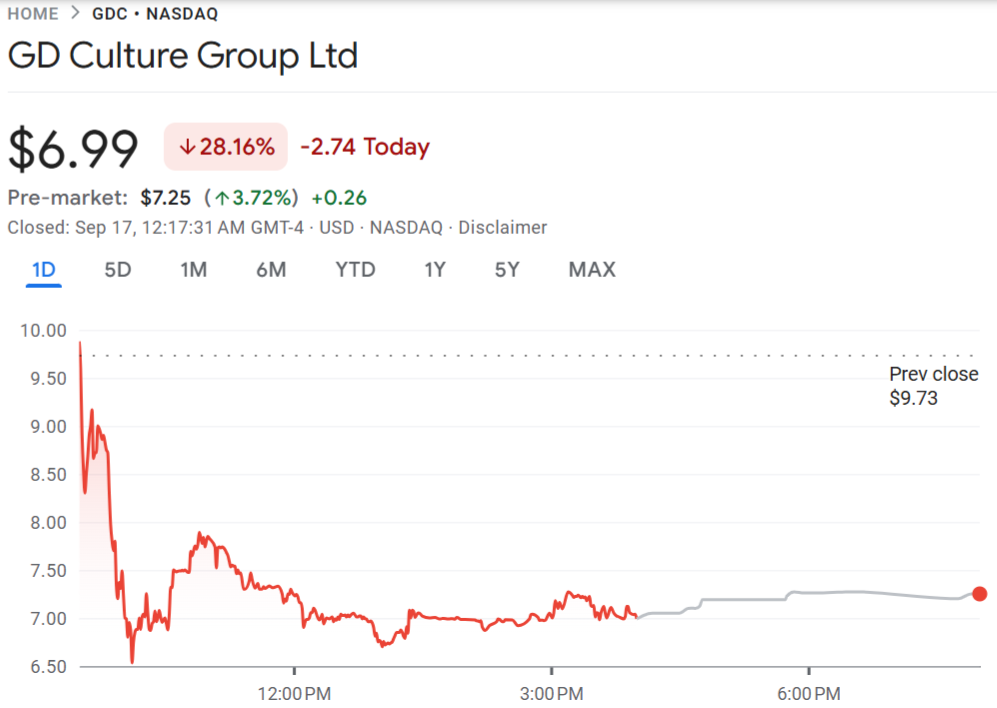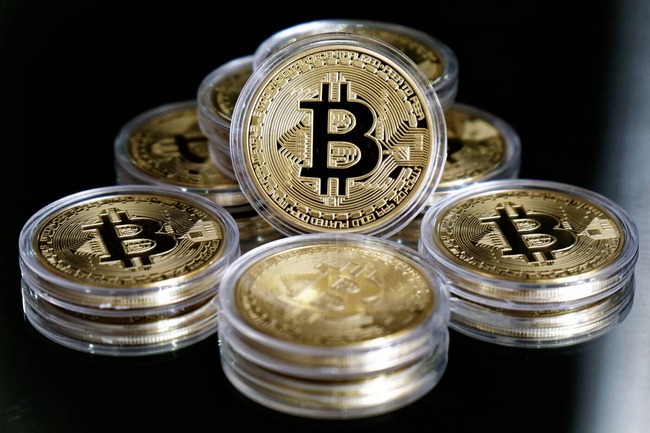Highlights:
- GD Culture shares fell 28% after announcing the acquisition of Pallas Capital’s assets.
- CEO Wang emphasized building diversified crypto reserves, citing growing Bitcoin institutional adoption.
- Over 190 public companies now hold Bitcoin, with MicroStrategy dominating nearly seventy percent.
Shares of livestreaming and e-commerce company GD Culture Group dropped 28% on Tuesday after it announced a deal to acquire all assets of Pallas Capital Holding. The company revealed it would issue 39.2 million common shares in exchange for Pallas Capital’s holdings, including about 7,500 Bitcoin, valued at roughly $875 million.
The agreement was finalized last Wednesday. With this acquisition, GD Culture becomes the 14th largest corporate Bitcoin holder. It surpasses Galaxy Digital Holdings, which currently holds 6,894 BTC, according to Bitcoin Treasuries data.

GD Culture’s Bitcoin Acquisition Sparks Market Concerns
GDC’s treasury head, Xiaojian Wang, said the acquisition supports the company’s goal of creating a diverse crypto reserve. He emphasized that these assets will form a strong foundation for long-term growth and financial stability. “When we integrate these assets, we are building the reserves necessary to execute on our digital asset strategy,” Wang said. He highlighted the company’s ambition to become a key participant in the crypto sector.
JUST IN: Publicly traded GD Culture Group ($GDC) to acquire Pallas Capital Holding along with its 7,500 #Bitcoin, positioning GDC to become one of the biggest players in BTC treasury strategy. pic.twitter.com/5jpCu6mot5
— BitcoinTreasuries.NET (@BTCtreasuries) September 16, 2025
GD Culture first revealed its treasury strategy in May. The company said it would sell $300 million of common stock to fund cryptocurrency purchases. Investors seem worried about the dilution from issuing new shares. Such actions often raise concerns, especially when tied to speculative strategies like buying Bitcoin. VanEck previously cautioned that companies funding crypto purchases through stock offerings could reduce shareholder value if their stock price drops below their asset value.
GD Culture Group shares fell to $6.99, marking their biggest single-day drop in over a year, according to Google Finance. Shares recovered slightly in after-hours trading but remain 97% below their February 2021 peak of $235.80. The company’s current market capitalization stands at $117.4 million.
Corporate Bitcoin Holdings Surge in 2025
This trend picked up in 2025, with more than 190 public companies now holding Bitcoin, up from fewer than 100 earlier in the year. MicroStrategy still dominates the market, controlling nearly 70% of the total. GD Culture first shared its crypto plans in May, announcing intentions to raise $300 million to invest in digital assets, including Bitcoin and the Trump-themed memecoin TRUMP. The announcement followed shortly after the company received a Nasdaq warning for falling below the $2.5 million minimum equity requirement.
Michael Saylor’s Strategy currently holds 636,505 BTC, making it the largest corporate Bitcoin holder by a significant margin. Bitcoin mining company MARA Holdings is in second place with 52,477 BTC, having added 705 BTC in August. New companies are entering the market and gaining ground. XXI, founded by Strike CEO Jack Mallers, has collected 43,514 BTC, while the Bitcoin Standard Treasury Company owns 30,021 BTC.
Other notable holders include crypto exchange Bullish with 24,000 BTC, Metaplanet with 20,000 BTC, and public firms such as Riot Platforms, Trump Media & Technology Group, CleanSpark, and Coinbase. This surge in corporate buying has sparked talk of a potential supply shortage. With only 5.2% of Bitcoin’s total 21 million supply left to mine, growing corporate demand could push prices higher.
Best Crypto Exchange
- Over 90 top cryptos to trade
- Regulated by top-tier entities
- User-friendly trading app
- 30+ million users
eToro is a multi-asset investment platform. The value of your investments may go up or down. Your capital is at risk. Don’t invest unless you’re prepared to lose all the money you invest. This is a high-risk investment, and you should not expect to be protected if something goes wrong.






